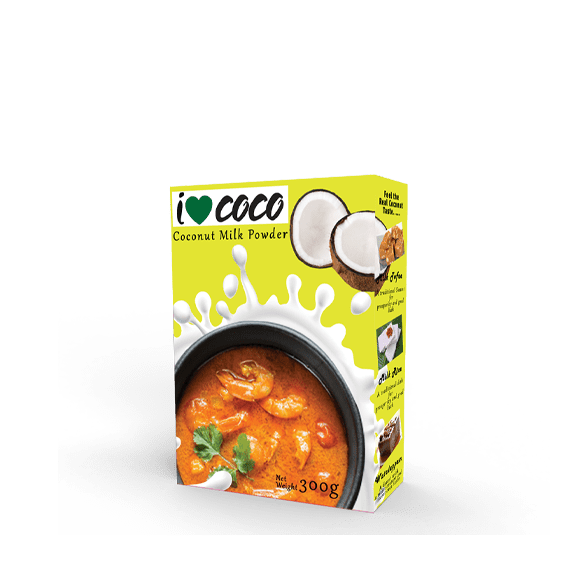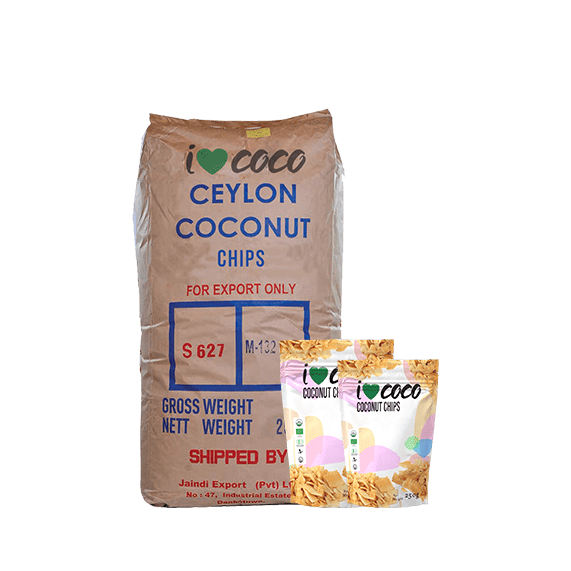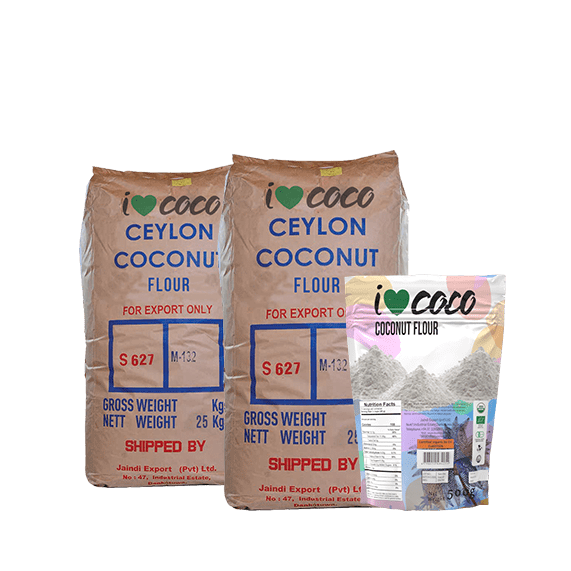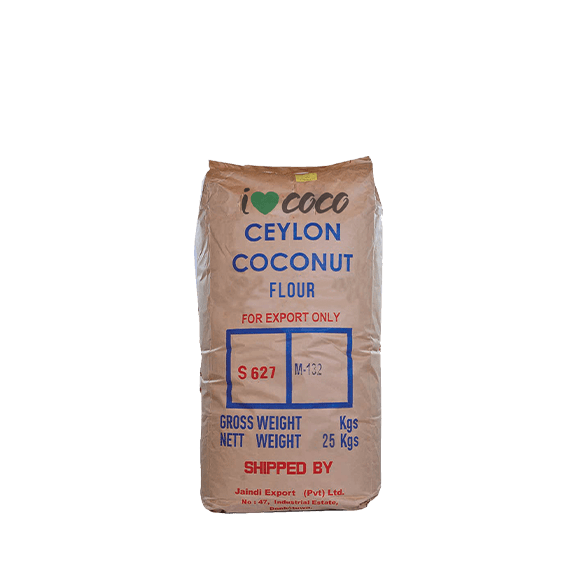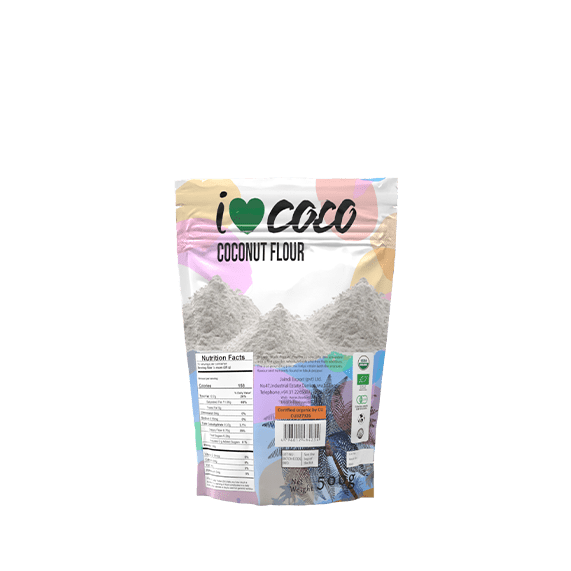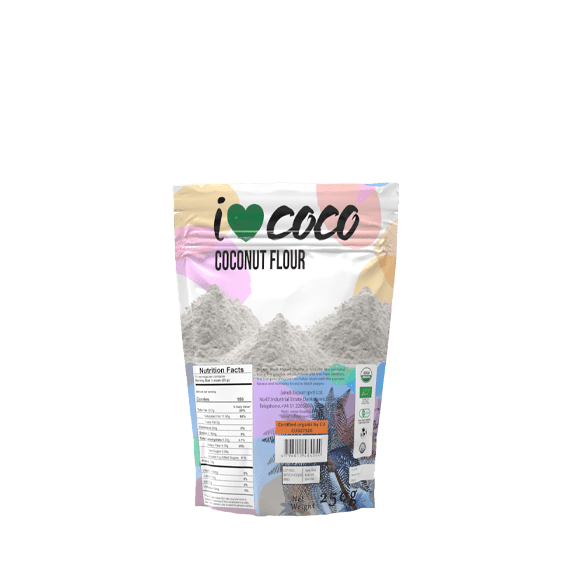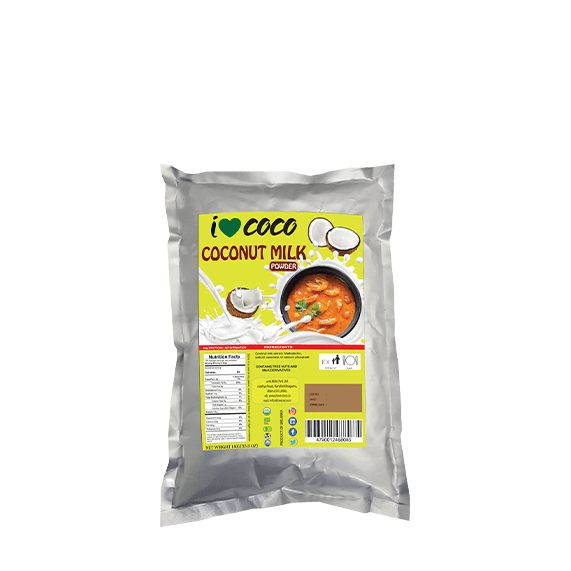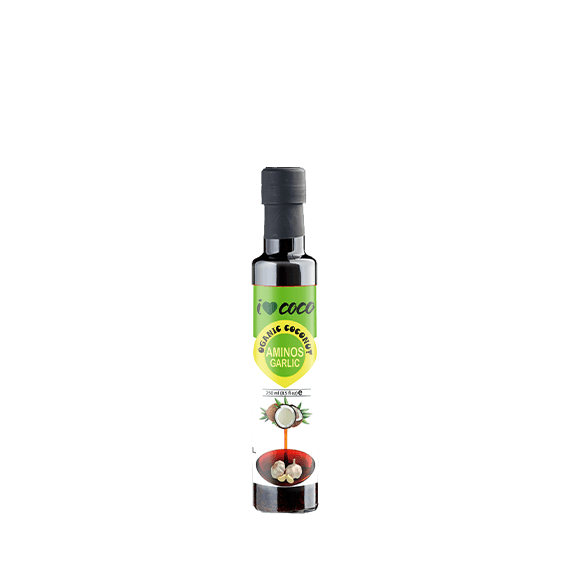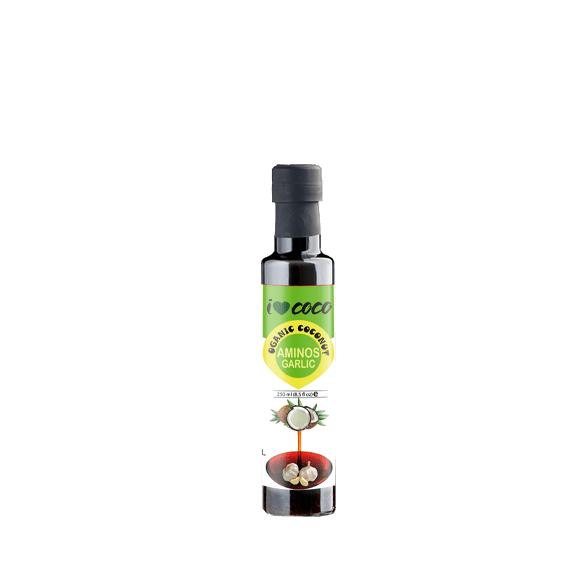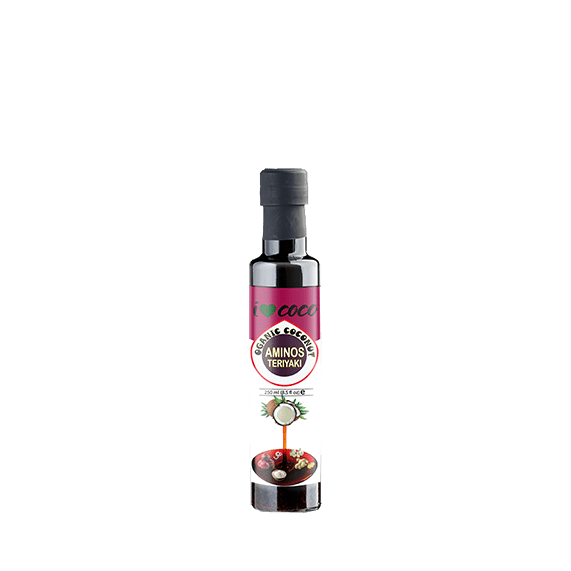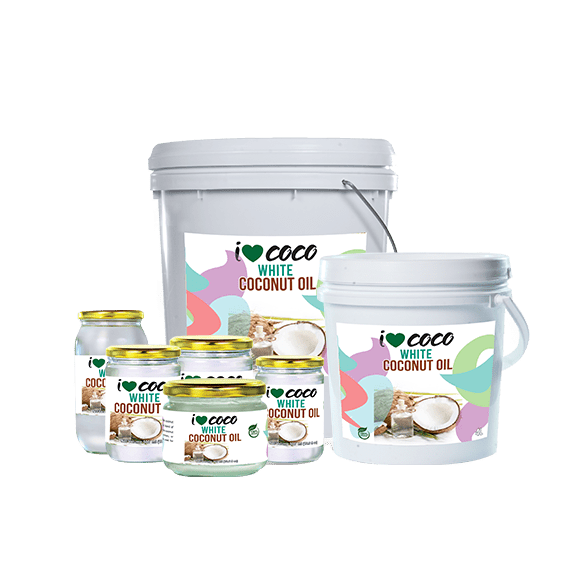Description
I Love Coco Coconut Flour: A Delicious and Nutritious Alternative
I Love Coco coconut flour is crafted with precision and care, making it a popular choice for health-conscious consumers. This flour is manufactured by separating the rich, white coconut meat from meticulously selected organic coconut shells. The process involves shredding the coconut meat, followed by pressing it to significantly reduce moisture and fat content. The result is a fine flour that mimics the texture of traditional wheat flour while offering a variety of health benefits. As a gluten-free, plant-based source of protein and fiber, coconut flour serves as an ideal ingredient in baking and can elevate the nutritional profile of many smoothies.
Nutritional Benefits of Coconut Flour
Coconut flour is not only delicious but also packed with nutrients. It is an excellent source of dietary fiber, which is essential for maintaining a healthy digestive system. This high fiber content helps to promote a feeling of fullness, making it a great option for those looking to manage their weight. Additionally, coconut flour is low in carbohydrates, making it a suitable ingredient for those following a ketogenic or low-carb diet. Unlike many conventional flours, coconut flour is also rich in healthy fats, including medium-chain triglycerides (MCTs), which can provide a quick source of energy and may have numerous health benefits, such as improving brain function and supporting weight loss.
Coconut Flour vs. Almond Flour: Which is Better?
When it comes to baking, many people wonder whether to choose coconut flour or almond flour. Both flours serve as excellent substitutes for high-carb wheat flour, especially for those adhering to a ketogenic diet. However, coconut flour has distinct advantages over almond flour. For instance, 1/4 cup of coconut flour is equivalent to 1 cup of almond flour, which means that coconut flour has a significantly lower carbohydrate content. Additionally, coconut flour is often considered to be less allergenic than almond flour, making it a more suitable option for individuals with nut allergies.
From a cost perspective, coconut flour typically comes at a lower price point than almond flour. This affordability makes it a more accessible choice for individuals looking to incorporate healthier ingredients into their cooking and baking without breaking the bank. Whether you are making pizza, cake, or cookies, substituting wheat flour with coconut flour can yield delicious results while supporting your dietary goals.
Storage and Shelf Life
To maintain the quality and freshness of I Love Coco organic coconut flour, proper storage is essential. The shelf life of this product is up to 12 months, provided that an unopened bag is stored at ambient temperature. It is important to note that this coconut flour is free from preservatives, which is a significant advantage for health-conscious consumers looking to avoid artificial additives.
For optimal storage, keep an unopened bag of organic coconut flour in a cool, clean, and dark place, away from direct sunlight, chemicals, and strong odors. The ideal temperature range for storage is between 25°C to 28°C. Once opened, it is advisable to store the flour in an airtight container to prolong its freshness and prevent moisture absorption.
Culinary Applications: How to Use Coconut Flour
I Love Coco coconut flour is a versatile ingredient that can be used in various gluten-free recipes. Here are some popular applications:
-
Baking: Coconut flour is an excellent base for gluten-free bread, cakes, and muffins. Its light, fluffy texture helps create baked goods that are both delicious and nutritious. When using coconut flour in recipes, it is often necessary to combine it with other gluten-free flours or ingredients to achieve the desired consistency.
-
Thickening Agent: Coconut flour can be used as a thickener for sauces and gravies. Its absorbent nature allows it to thicken liquids effectively, creating a creamy and satisfying texture without the need for traditional thickeners like cornstarch or wheat flour.
-
Coating for Fried Foods: Coconut flour can also serve as a gluten-free alternative for breading and coating fried foods. Its unique flavor adds an interesting twist to dishes like flour-fried fish, providing a delightful crunch.
-
Smoothies: For a nutritional boost, coconut flour can be added to smoothies. It enhances the smoothie’s texture while contributing valuable fiber and healthy fats. Simply blend a tablespoon or two into your favorite smoothie recipes to reap the benefits.
-
Coconut Flour Pancakes: For a delicious breakfast option, consider making pancakes with coconut flour. Combine coconut flour with eggs, milk (or a dairy-free alternative), and a sweetener of your choice for a nutritious and satisfying morning meal.
Flavor Profile and Texture
I Love Coco organic coconut flour has a light creamy white color and a texture that is similar to wheat flour, making it easy to incorporate into a variety of recipes. The flour possesses a subtle tropical coconut flavor that adds a unique sweetness to baked goods and smoothies. This refreshing taste makes it an appealing ingredient for those looking to explore new flavors in their cooking.
I Love Coco coconut flour is a versatile, nutritious, and delicious alternative to traditional wheat flour. Its numerous health benefits, affordability, and unique flavor profile make it an ideal choice for a variety of culinary applications. Whether you’re following a gluten-free or ketogenic diet or simply looking to incorporate healthier ingredients into your cooking, coconut flour is an excellent addition to your pantry. With its ease of use in baking and cooking, you’ll find that I Love Coco coconut flour can elevate your recipes and support your health goals, all while providing the delightful taste of coconut.
